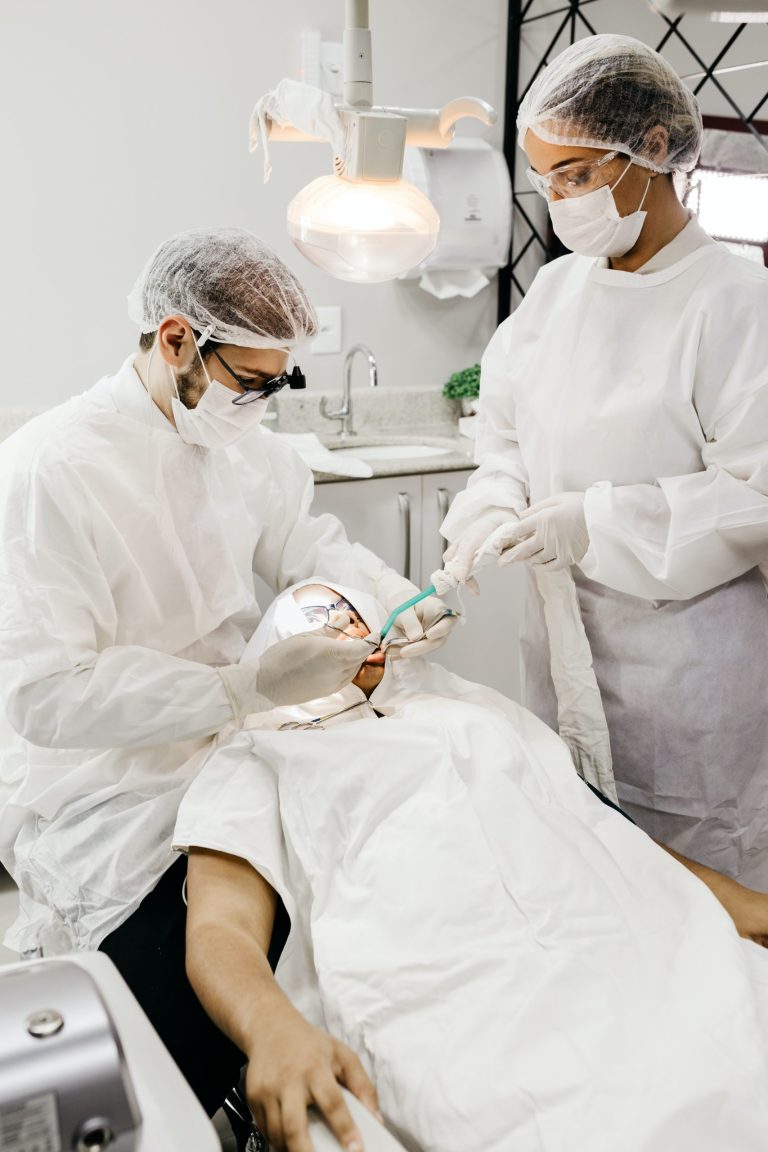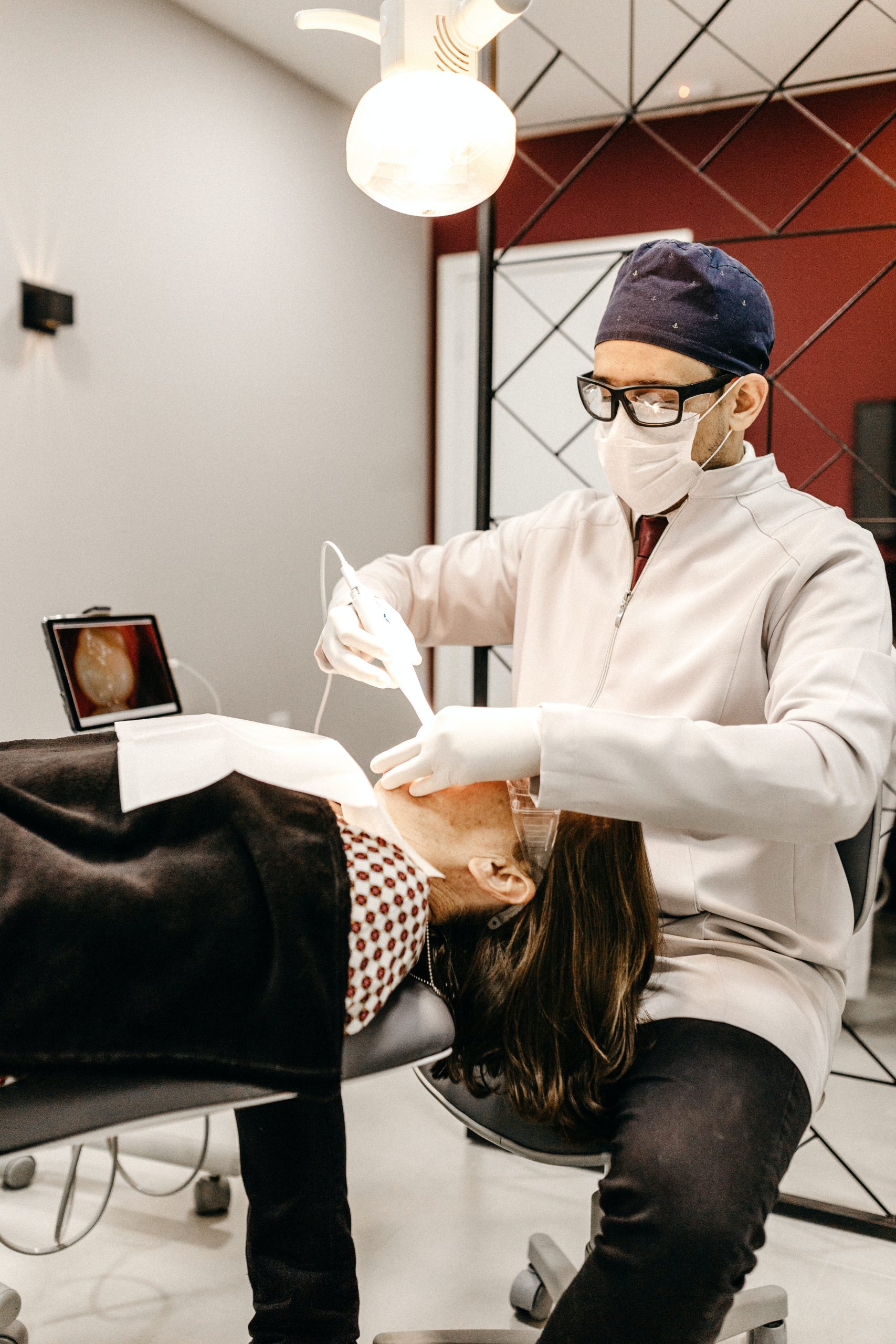Teeth Whitening
Crowns and Bridges are two of the most commonly used prosthetic devices to fix broken, chipped, or decayed teeth. Unlike dentures that can be removed and cleaned daily, crowns and bridges are cemented onto existing teeth or implants and require a dentist’s expertise to be removed.
Basics of Crowns
Crowns are prosthetics that act as a cap around broken teeth. Crowns are the best alternatives to go for when you have a broken, decayed, or chipped tooth. Fitting a crown is a relatively simple process. The first step involves filing down and reshaping a tooth neatly. Then, the tooth structure is restored to support the crown, and the cap is placed on the newly shaped tooth before cementing it to the gum. Crowns can be made of metals, porcelain, or ceramic. The choice can be made based on the position of the missing tooth, the need for aesthetically pleasing crowns, and the budget.
Basics of Bridges
Bridges are also a prosthetic device that replaces missing teeth. They are usually made with a blend of porcelain and metal to offer strength and durability while maintaining a natural look. Bridges are typically fitted via false teeth on either side of the artificial crown. The tooth that fills the gap is custom-made to fit in the space and match the color of the adjacent teeth. Once done, the artificial tooth and the caps on either side look and feel like a natural tooth.
How we offer treatments for Crowns and Bridges at Pacific Dental
At Pacific Dental, we understand that no two teeth are the same. So, we carefully scan the layout of the gum and the teeth, take pinpoint measurements, and offer you the perfect dental solution. The treatment is done carefully and methodically over one or many appointments depending on the requirement.
So, if you have a fallen or chipped tooth, call us at (559) 492-2486 for an appointment today, so we may help you in covering up the space to restore your flawless smile.


Crowns and Bridges
Crowns and Bridges are two of the most commonly used prosthetic devices to fix broken, chipped, or decayed teeth. Unlike dentures that can be removed and cleaned daily, crowns and bridges are cemented onto existing teeth or implants and require a dentist’s expertise to be removed.
Basics of Crowns
Crowns are prosthetics that act as a cap around broken teeth. Crowns are the best alternatives to go for when you have a broken, decayed, or chipped tooth. Fitting a crown is a relatively simple process. The first step involves filing down and reshaping a tooth neatly. Then, the tooth structure is restored to support the crown, and the cap is placed on the newly shaped tooth before cementing it to the gum. Crowns can be made of metals, porcelain, or ceramic. The choice can be made based on the position of the missing tooth, the need for aesthetically pleasing crowns, and the budget.
Basics of Bridges
Bridges are also a prosthetic device that replaces missing teeth. They are usually made with a blend of porcelain and metal to offer strength and durability while maintaining a natural look. Bridges are typically fitted via false teeth on either side of the artificial crown. The tooth that fills the gap is custom-made to fit in the space and match the color of the adjacent teeth. Once done, the artificial tooth and the caps on either side look and feel like a natural tooth.
How we offer treatments for Crowns and Bridges at Pacific Dental
At Pacific Dental, we understand that no two teeth are the same. So, we carefully scan the layout of the gum and the teeth, take pinpoint measurements, and offer you the perfect dental solution. The treatment is done carefully and methodically over one or many appointments depending on the requirement.
So, if you have a fallen or chipped tooth, call us at (559) 492-2486 for an appointment today, so we may help you in covering up the space to restore your flawless smile.
White Fillings Only
Cavities cause holes in the teeth and tend to damage the structure of the teeth. The dentist, in such cases, removes the damaged areas to prevent further damage. The removal of damaged parts could affect the teeth’ aesthetics, causing misalignment and leading to uncomfortable bites, which is why dental fillings are placed in the treated area to make up for the lost tooth. When these dental fillings used are tooth-colored, they are called white fillings.
Fillings form a part of affordable dental treatment and are very effective in restoring teeth after the cavity is removed. It corrects the bite, lowers the risk of dental issues, and restores optimum oral health.
The Basics of White Fillings
Dental fillings are available in metal and composite resin options. Metal fillings are further available in gold and silver amalgam. On the other hand, the composite filling or white filling is a tooth-colored plastic and silica mixture used to restore decayed teeth. The silica in this filling type offers a reflective property similar to the color of the tooth enamel. While metal amalgam has been in use for the longest time, composite resins have been in use since the 1960s.
Since composite resin, or white fillings, do not require mercury to be applied, usually have a longer average lifespan, and have a superior aesthetic effect, they have become popular over time.
How White Fillings are Placed at Pacific Dental
At Pacific Dental, once the cavity treatment is completed, we ensure the tooth is cleaned and well sanitized. The treatment area is prepped using a special etching compound that helps the white filling bond better with the enamel’s surface. Then, the filling is carefully matched with your tooth’s color and skillfully molded on to the tooth. Finally, blue light is used to harden the filling. The white filling perfectly blends with the surrounding area – most often making it difficult for the patient to tell where it starts and where it ends!
If you are suffering from a cavity and are worried about losing your tooth’s structure, you need to worry no more! Schedule an appointment with us or call us at (559) 492-2486 so that we can help clear out the cavity and restore it with natural-looking white fillings.
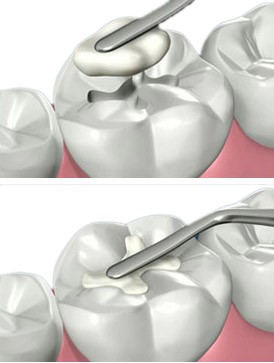
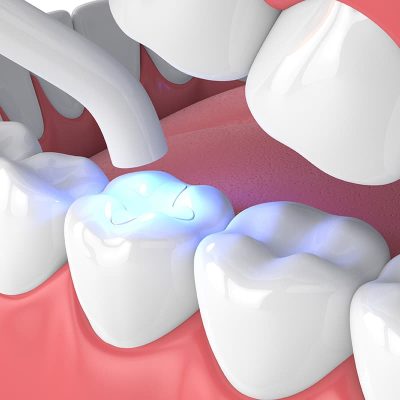
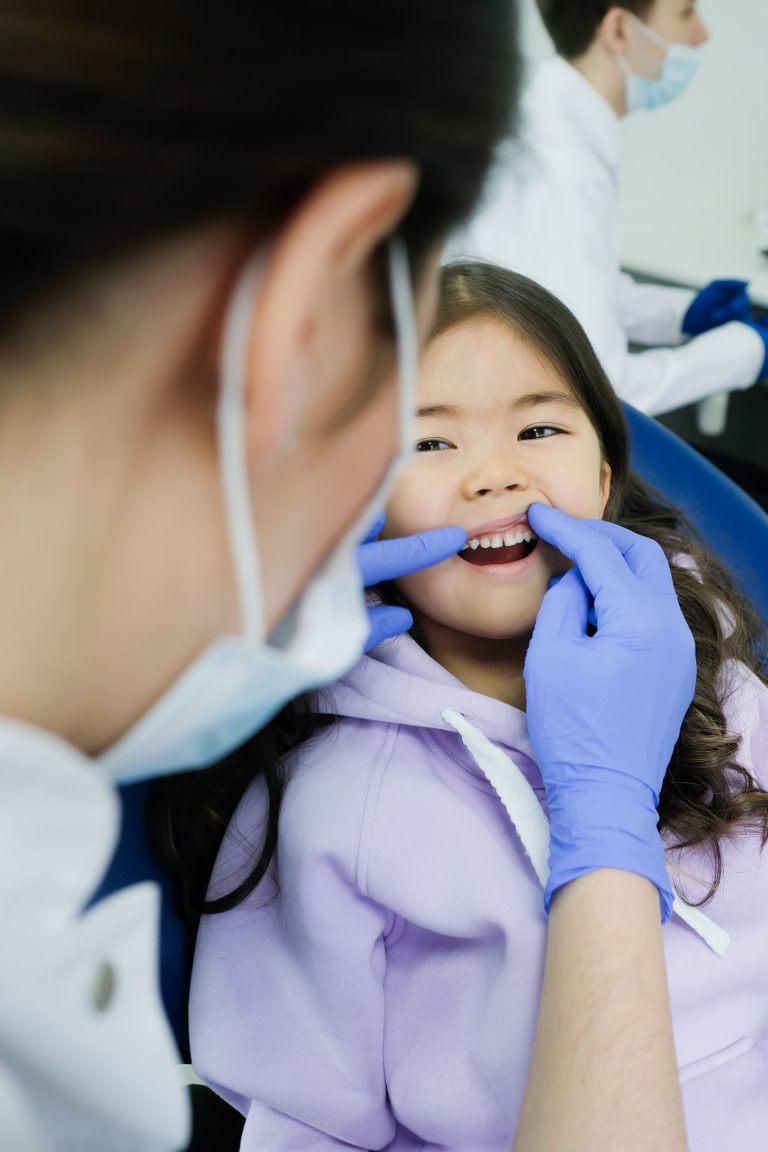
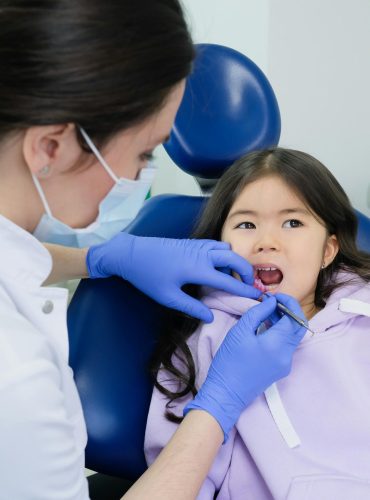
Pediatric Dentistry
A pediatric dentist is a specialized dentist who treats children starting from infancy through their teenage years. They have the qualification and experience in treating teeth, gums, and mouth of children with completion of at least two years of residency training in pediatric dentistry. The elaborate training includes treating infants, children, teenagers, and kids with special needs.
The Basics of Pediatric Dentistry
Children begin developing milk teeth within the first six months of life. The milk teeth start falling out by the age of 6 or 7 years to be replaced by strong permanent teeth. Proper dental care is necessary for every child as they are vulnerable to tooth decay, and certain oral diseases can have a long-lasting effect. ‘Dental caries,’ an infectious disease that damages teeth, are prevalent among children.
The only way to prevent oral diseases, including dental caries, is to visit the pediatric dentist for regular check-ups and preventive care, including dental cleaning, fluoride treatments – and diagnosis of oral conditions. Besides oral health, pediatric dentists also conduct an early assessment for teeth straightening and correcting misaligned bites with the help of orthodontic treatments.
How We Conduct Pediatric Dentistry at Pacific Dental
At Pacific Dental, we offer comprehensive pediatric dental care beginning with infant oral exams to assess ‘caries’ risk’ in mother and child. We conduct preventive care treatments, offer nutrition and diet recommendations, and provide counseling for habits such as thumb sucking and pacifier use. Our professionals are experts in the repair of tooth cavities, tooth defects, management of gum conditions like ulcers, mucoceles, short frenular, and gum disease such as pediatric periodontal disease. We also offer emergency services for knocked-out teeth, displaced teeth, and fractured teeth.
If you are on the hunt for a pediatric dentist for your little one, call us at (559) 492-2486 to schedule an appointment. Our dentists are kid-friendly and can sensitively treat even the most anxious kids. So, visit our clinic, and we will make sure your child does not fear dentist appointments again.
Oral Surgery
Oral surgery comprises complex facial and dental surgeries necessitated by medical conditions caused to the mouth, jaws, face, and teeth. While general dentists may be able to conduct basic oral surgeries, special cases may require the intervention of endodontists, periodontists, prosthodontists, or oral surgeons.
At Pacific Dental, our expert team is specialized in the most advanced minimally-invasive surgical techniques aimed to restore your teeth to a pain-free, natural, and functional state. We combine state-of-the-art techniques with surgical guides, which achieve the best possible surgical results.
Basics of Oral Surgery
Oral surgery consists of a wide array of treatments that address facial pain, wisdom tooth issues, reconstructive surgery post a facial injury, cleft and palate surgery, misaligned jaw, obstructive sleep apnea, tumor in the face, jaw, or neck; and so on.
Our oral surgeons are specialized in conducting treatment involving the jaw bone such as wisdom tooth extractions or placing dental implants, and conducting facial reconstructive or facial trauma surgeries. They are also trained in pain control and inducing anesthesia before the surgery.
In case of severe trauma to the face or head, the oral surgeon may work alongside other surgeons such as a surgical oncologist, orthopedic surgeon, otolaryngologist, etc.
However, if you have been referred to an oral surgeon by your general dentist, there is no need to panic. General dentists may recommend oral surgeons not because the case is severe but because they may handle it better given the amount of training and expertise in handling complex cases.
How We Conduct Oral Surgery in Pacific Dental
When you step into Pacific Dental, you can be assured that you will receive a pain-free and effective treatment from board-certified dentists and oral surgeons. We are thorough in every step of the treatment, starting from examination and diagnosis to treatment and recovery. Treatment plans will be made after discussion with the patient after all possible questions he or she may have been answered. Our executives will guide you through a pain-free treatment offering suggestions pre and post-surgery as and when needed.
If you are looking for an oral surgeon to address any oral issue you may have, give us a call at (559) 492-2486 so that we can book an appointment at the earliest!
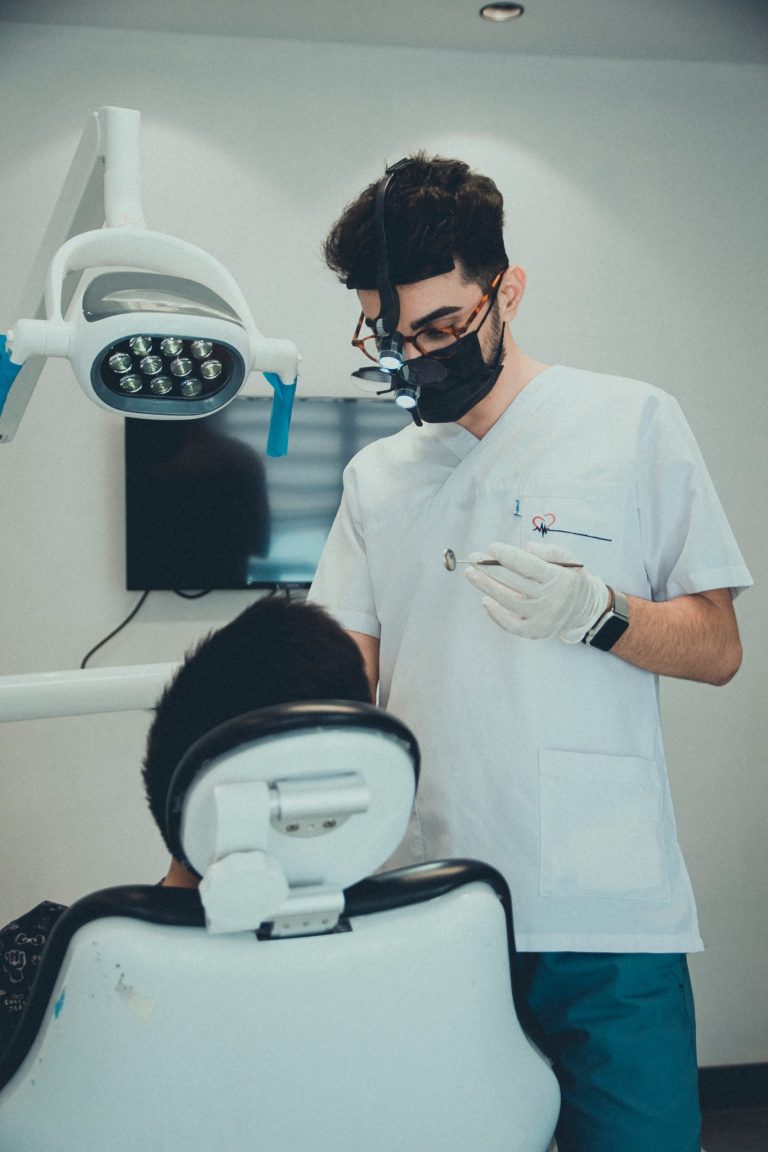
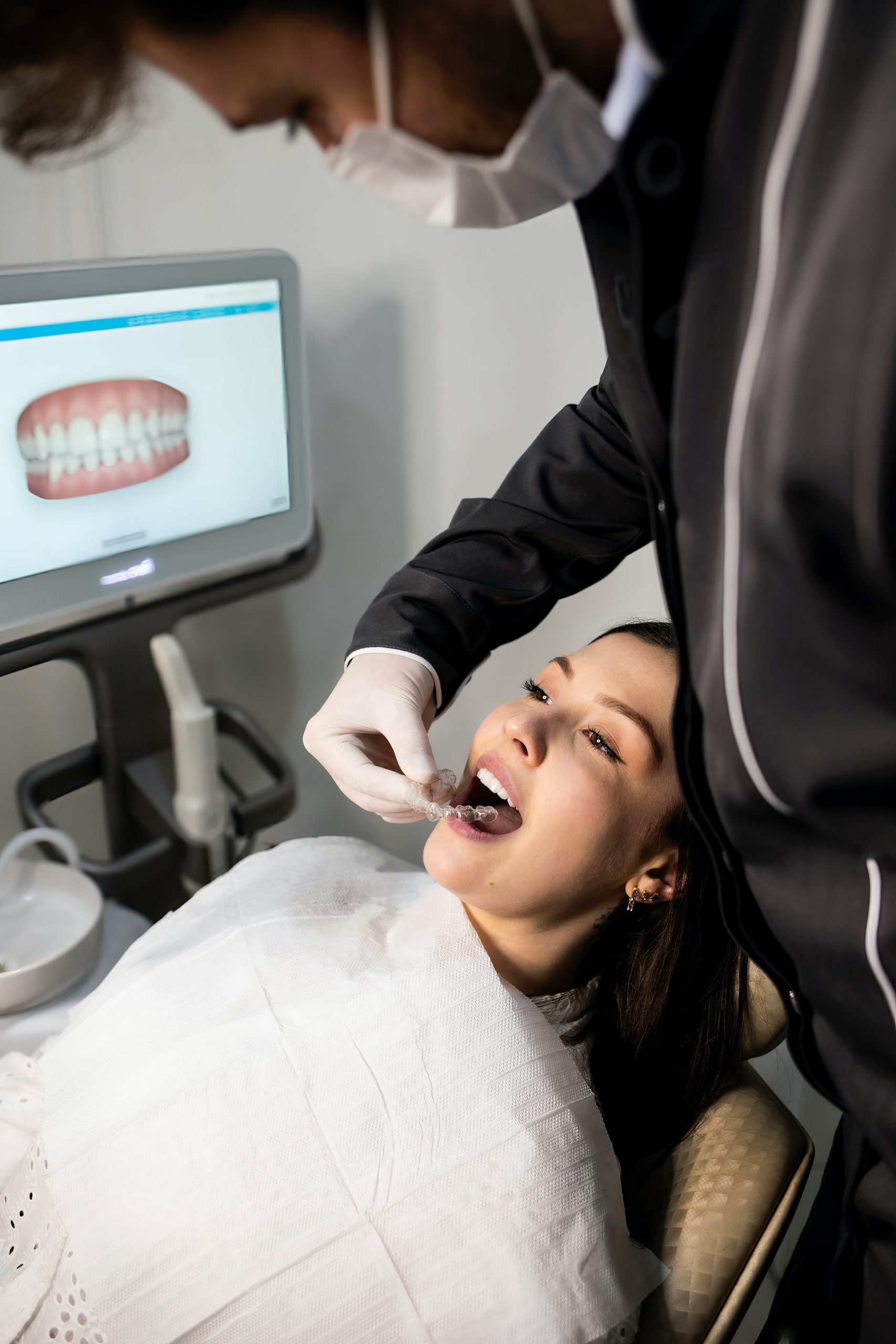
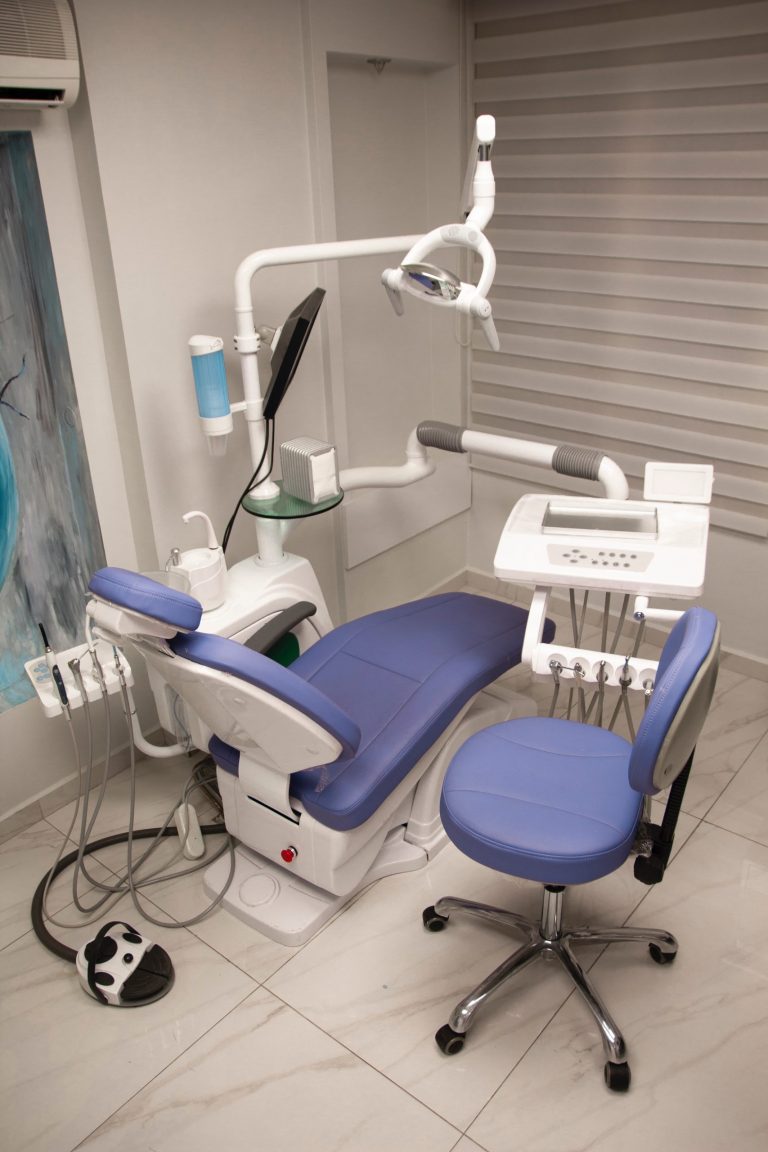
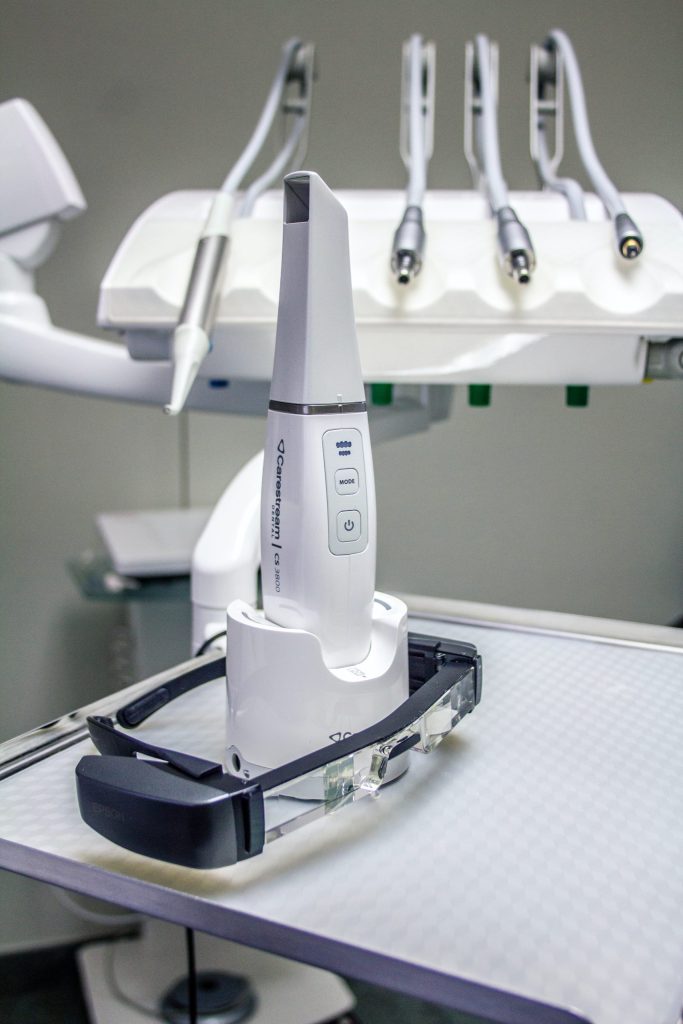
Endodontic Treatment
The hollow space inside our tooth contains soft tissue called the dental pulp. Decay, repeated dental procedures, trauma to the mouth, or cracks can cause the pulp to become irritated or infected. If left untreated, this can result in pain, sensitivity to heat or cold, tooth discoloration, swelling on the gums etc.
Endodontic treatment is designed to eliminate bacteria from the infected root canal, prevent the tooth’s reinfection, and save the natural tooth. During the process, the infected pulp is removed and the inside of the tooth is cleaned and disinfected, then filled and sealed.
While general dentists can perform basic endodontic treatments, certain severe cases may need reference to a specialist.
Basics of Endodontic Treatment
The need for endodontic treatment may arise due to various reasons – the most common being a traumatic injury. A blow to the mouth may cause toothache due to a cracked or fractured tooth. In some instances, the pain may be felt in a neighboring tooth, neck, ear, or head. Our dentist can help diagnose the issue in such cases and prepare a treatment plan. Damage caused to the pulp in the teeth or the nerves may affect teeth growth in children or cause pain and discomfort in adults. Several endodontic treatments are taken up to address such issues and restore oral health.
How We Offer Endodontic Treatments at Pacific Dental
At Pacific Dental, before we dive into the treatment, we like to examine the case and understand the degree of damage, inflammation, or infection suffered by the tooth. Once all the necessary tests are done and the condition is diagnosed, a treatment plan is prepared and communicated to the patient. While most issues are resolved in one visit, some may need two or three visits to our clinic.
Endodontic treatments are mostly successful and immediately address the issue. In case the pain persists, there is nothing to worry about. We will provide a backup or alternative treatment to offer a permanent solution.
If you feel a sharp pain in your mouth on cracking or chipping your teeth or cannot quite pinpoint the pain around your mouth, call us at (559) 492-2486 immediately so that we may take a look and address the issue immediately.
Partials and Dentures
Partials and dentures are prosthetic teeth that are utilized when more than one adjacent teeth are missing. People may lose teeth because of several reasons – injury, disease, or age. Missing teeth make biting, chewing, and speaking a bothersome task. Moreover, missing teeth cause the face’s shape and structure to sag, making the person look much older. Partials and dentures offer an effective solution for conditions such as those mentioned above.
Basics of Partials
Partials are a set of limited teeth that are built on a metal framework or gum-colored plastic. They often clasp over natural teeth and can be removed easily to clean or store when going to bed. If necessary, the adjacent teeth may be provided with crowns so that the partials may easily fit onto the teeth.
Basics of Dentures
Dentures or full dentures are a set of prosthetic teeth for the entire upper or lower jaw. This would be a viable option for someone who has lost most of their teeth and needs a replacement for the entire jaw. If there is a tooth or two still remaining, it would have to be removed to make way for the full dentures. They are also built over gum-colored acrylic or metal framework.
How we Offer Treatments with Partials and Dentures at Pacific Dental
At Pacific Dental, we carefully examine the patient’s teeth and recommend a suitable dental device. Metal may be inserted into the gums so that the dentures clasp on comfortably. Once the gum heals after the procedure, molds of the gums are taken so that dentures may be carefully crafted to rest on the natural gums. The gums and teeth are built to suit the facial structure and match adjacent teeth in case of partials. It may take a while for the patients to get adjusted to the dentures fully. We make ourselves available to patients for fittings and consultations in general until they are habituated to their dentures.
If you have missing teeth and do not wish to see your face sag, call us at (559) 492-2486 for an appointment today so that we can chalk out a plan to get you the best dentures.
